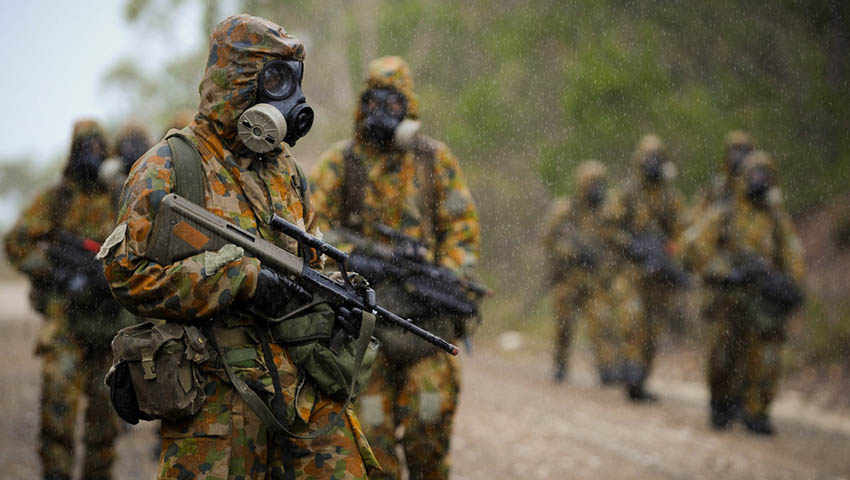The Next Generation Technologies Fund has sought proposals from academia, industry and government-funded organisations for two leap-ahead Human Performance projects.
To continue reading the rest of this article, please log in.
Create free account to get unlimited news articles and more!
As part of the research, the Centre for Defence Industry Capability (CDIC) and Next Generation Technologies Fund (NGTF) have broken the research down into two 'leap-ahead' Human Performance projects including:
- Performance Patch project; and
- Cognitive Gut project.
The Performance Patch project aims to advance the real-time measurement and prediction of warfighter readiness and performance, more specifically to:
- Undertake innovative mechanistic and applied research that will explore the potential for molecular biomarkers with the capacity to predict cognitive and physical performance (and risk of physical injury) before and during military missions, for example in the coming 24-hour, two-hour and 30-minute time periods;
- Pilot minimally invasive biofluid sampling options that might support a fieldable Performance Patch concept; and
- Explore the synergy of molecular biomarkers and non-invasive wearables to indicate an individual’s status to perform at optimal levels.
Meanwhile, the Cognitive Gut project aims to undertake innovative mechanistic and applied research that will optimise and enhance cognitive performance through interventions of the gut microbiota, asking the following questions:
- What gut bacterial species have the greatest effect on military cognitive performance?
- How can these gut bacterial species be optimised or enhanced to induce the greatest benefit to military cognitive performance?
- What are the gut bacterial species that are most negatively affected by military-relevant stressors? and
- What are the mechanisms responsible for the gut bacterial affecting cognitive performance?
The NGTF is investing up to $7 million over 3.5 years to deliver two parallel studies aimed at advancing either the measurement of warfighter performance, or its enhancement through modification.
Funding for applicants is limited to 1.5 years in the first instance. Follow-on investment for the remaining two years is subject to a mid-point project review.
This mid-point review will determine whether to continue, adjust or stop the project. The results of this review will also inform the case for future funding approval from NGTF.
Potential suppliers wishing to respond to this procurement will be required to fully comply with and meet the following conditions for participation:
- Australian citizenship for key researchers and the ability to obtain a baseline security clearance is required due to the potential to work with official/sensitive information;
- Applicants will be encouraged to form multi-disciplinary/multi-institution, research and development partnerships, drawing on the world-class research capabilities within Australia and New Zealand; and
- Defence is seeking to build enduring science capability and is looking for partners willing to co-invest in the immediate research and intending to partner over the longer term.
DST will provide a research program brief to all interested parties via Microsoft Teams on Wednesday, 27 January 2021. This will provide an opportunity for clarifications and questions to be raised.
Any further questions after this brief should be provided in writing and DST will provide a written response to all parties.
The call for proposals closes COB (AEDT) on Tuesday, 23 February 2021. Submissions are to be made via AusTender.

 Login
Login







